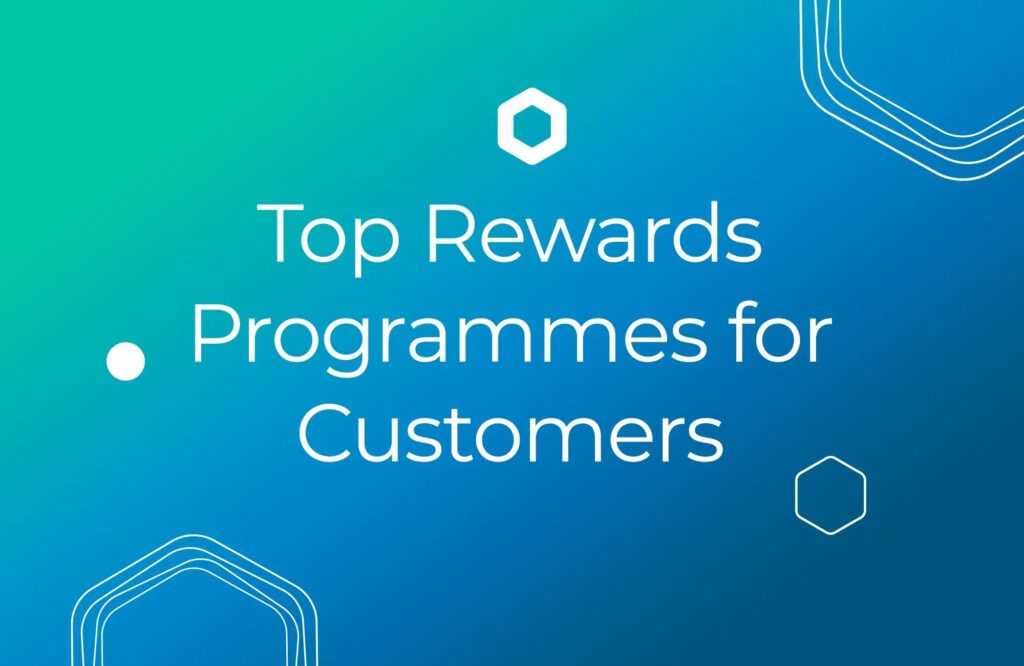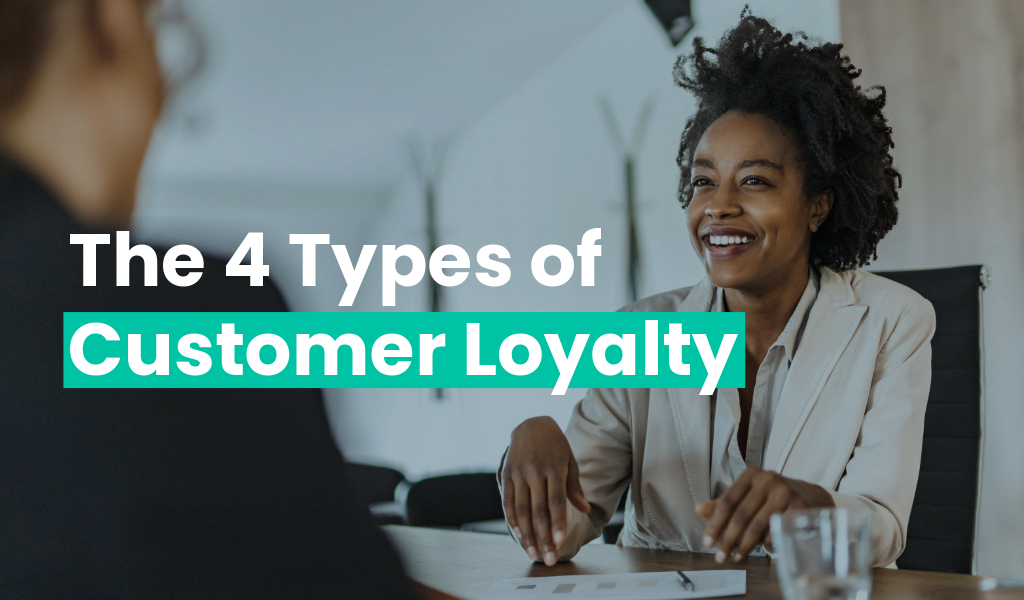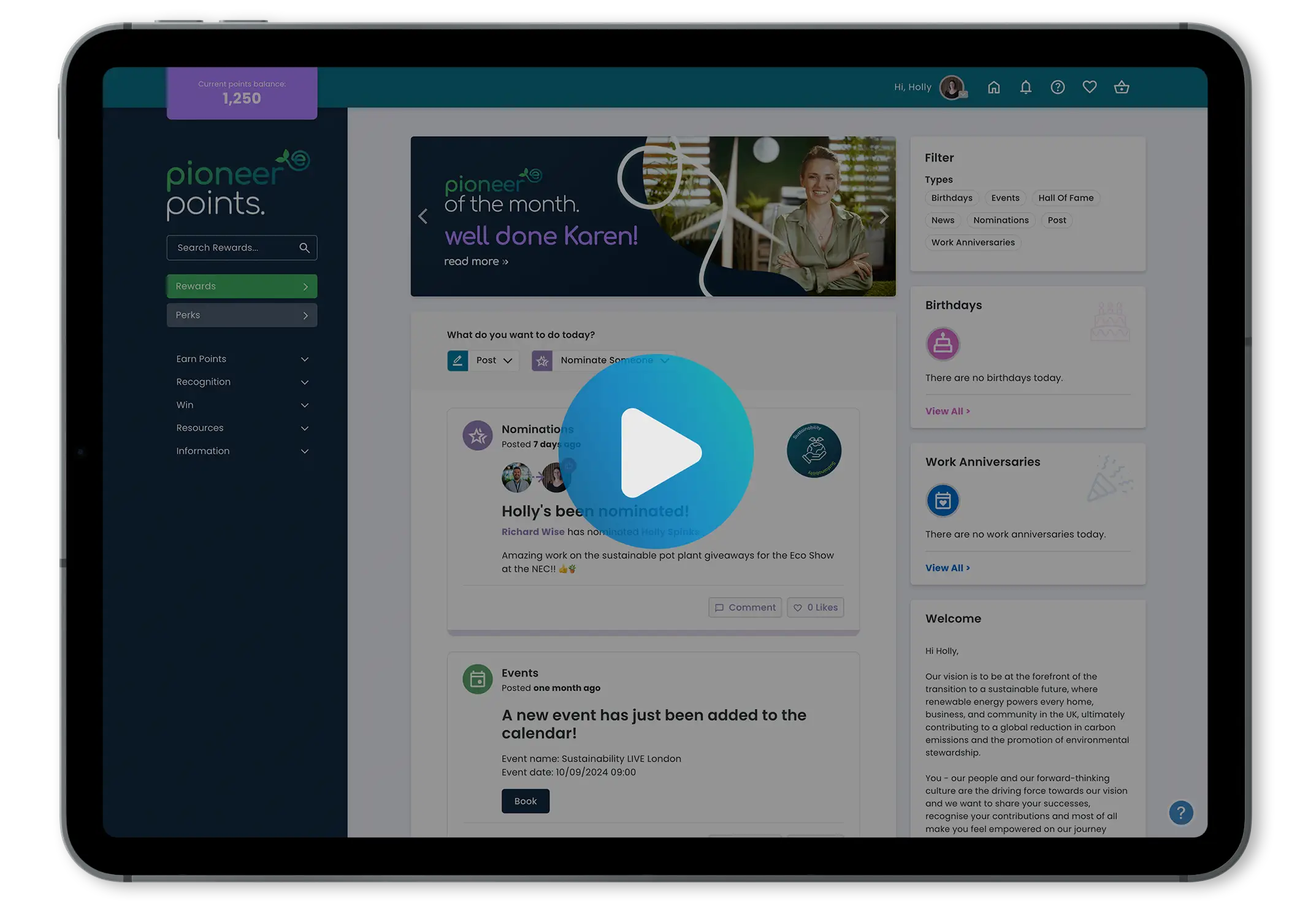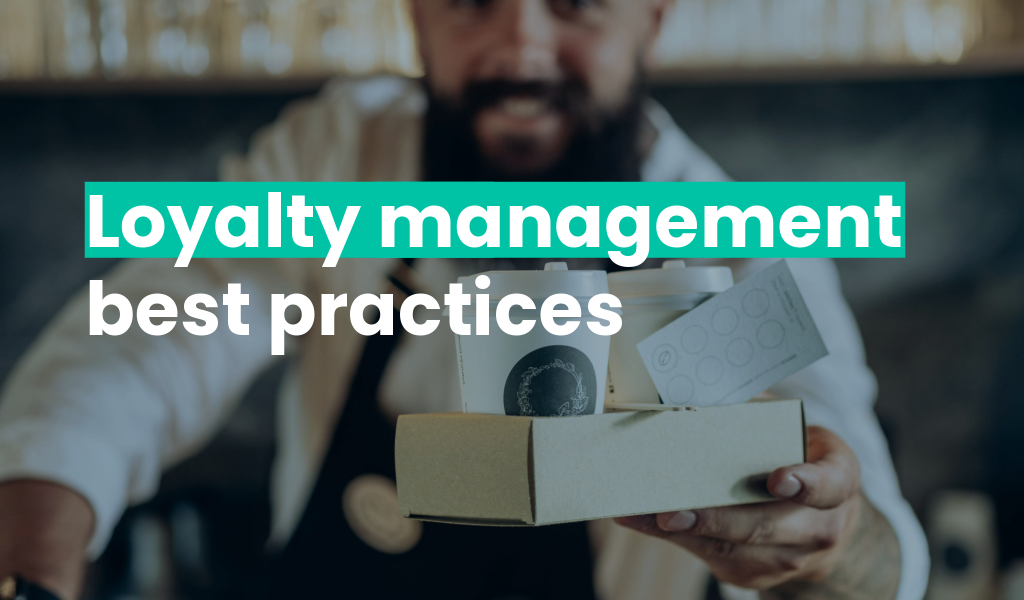


Consumers demand more from brands to earn their lasting commitment; so effective loyalty management from sales, marketing and service teams is crucial to transform one time customers into lifelong brand advocates.
Customers want more than just a decent product. They want the red carpet, jazz hands and maybe a personalised thank-you note every now and again. So winning their loyalty takes more than a one-off discount and a cheery email. To turn fleeting flings into long-term relationships, your teams need to pull together to form the ultimate loyalty-loving dream team.
Loyalty management isn’t about bribing people with points (tempting though that is). It’s about creating real, lasting connections, like the kind where your customer feels seen, valued and maybe even a little bit special. From bespoke reward programmes to polishing every touchpoint until it shines, how will you ensure your brand the one they keep coming back to?
For businesses that want to earn their customers’ loyalty, they need to ask themselves how they can craft a loyalty strategy that truly captivates the audience and should they enlist the expertise of external specialists to build a robust loyalty framework?
70% of consumers spend more and engage more frequently with brands and retailers whose loyalty program they are a member of, compared to brands where they are not.(Deliotte)
Skip to:
What is loyalty management?
Loyalty management is the fine art (and a bit of science) of keeping your customers coming back for more. Not because you’ve bribed them with points, but because they genuinely want to – building a relationship, not just a transaction. Think of it less like speed dating and more like long-term courting, complete with flowers, thoughtful gestures and the occasional surprise… but in business form.
At its core, loyalty management requires you put strategic measures in place to encourage repeat purchases, deepen engagement and transform everyday customers into full-blown brand enthusiasts. And we’re not just talking about throwing out the odd discount code or birthday email (although those can help!). This is about delivering consistent value, personalised experiences and building a sense of trust that feels less ‘sales pitch’ and more ‘we get you’.
Done right, loyalty management creates a customer experience that’s so smooth, so seamless and so rewarding, that leaving your brand would feel like breaking up with the friend who always knows your coffee order. It involves aligning your sales, marketing and customer service teams behind a shared mission: to keep your customers happy, engaged and coming back for more… preferably with friends.
So whether it’s through a clever points-based programme, exclusive perks, early access to new products or just exceptional service that doesn’t make them scream into the void, loyalty management is how you stay top of mind (and top of cart).
What’s involved in loyalty management?
Loyalty management is like hosting a never-ending dinner party where your customers are the guests of honour. It takes planning, attention to detail and the odd sprinkle of charm to keep everyone feeling valued and coming back for seconds.
At its heart, loyalty management builds rock-solid relationships that go the distance. We’re talking about a carefully curated mix of strategy, technology and good old-fashioned customer care. From clever rewards schemes to data-driven insights (and everything in between), here’s what really goes into keeping your customers loyal, engaged and mildly obsessed with your brand.
Here’s a deeper look into the key components involved:
- Loyalty programme design
This is where the magic begins. Designing a loyalty programme isn’t just about slapping together a few points and perks and hoping for the best. Done right, it’s about crafting a smart, strategic experience that not only supports your business goals but makes your customers think, “Ooh, I like the sound of that.” At this stage, you’re laying the groundwork for something brilliant. It starts with understanding what really motivates your audience (spoiler: it’s rarely just a 10% off voucher). You’ll want to decide which types of rewards will hit the sweet spot – whether that’s classic points-based systems, exclusive discounts, early access to shiny new products or VIP experiences that make customers feel like royalty. Next comes the structure: tiers, membership levels and the all-important rules of engagement. Are you rolling out the red carpet for everyone, or will customers need to work their way up to the champagne lounge? A well-thought-out tiered programme can drive engagement, boost average spend and appeal to our natural love of levelling up – because psychology shows that we all want to unlock the next level! And of course, behind the scenes, everything should be underpinned by data and insight. Here at Incentivesmart, we make sure your programme isn’t just pretty on the outside – it’s built on solid strategy, measurable outcomes and tech that makes personalisation a breeze. Because a loyalty programme should be more than a nice gesture… it should be a powerful engine for growth. - Customer engagement
Successful loyalty management hinges on actively engaging customers throughout their journey with the brand. Personalised communication that’s tailored to individual preferences works wonders here, especially when highly refined based on behaviour triggers. Targeted promotions can be sent based on purchase history or online behaviours and interactive experiences can encourage participation and interaction from less engaged customers. - Data analytics
Harnessing customer data is critical for gaining insights into behaviour and trends. Analytics help in understanding customer segments, predicting future behaviour and measuring the effectiveness of all loyalty initiatives launched (no matter how small). It’s a goldmine of information that can work wonders to and enhance programme performance. - Reward fulfilment
Managing the distribution, tracking and redemption of rewards is paramount to a seamless customer experience. Issuing rewards promptly, tracking accumulated points or benefits accurately and providing easy-to-use mechanisms for customers to redeem their rewards can make or break a relationship. - Customer support
Providing exceptional support for loyalty programme members is crucial. Swift resolution of issues and answering the phone/email quickly and in a knowledgeable way builds trust. Simply offering timely assistance with reward redemption, for instance, is a golden opportunity to craft a positive interaction that reinforces loyalty to the brand. - Performance monitoring
Regularly monitoring key metrics such as customer retention rates, redemption rates, return on investment (ROI) and overall programme engagement provides insights to build upon. - Compliance and security
Ensuring compliance with regulatory requirements and maintaining data security are paramount in loyalty management. Businesses must adhere to data protection laws, handle customer information responsibly and implement security measures to safeguard sensitive data related to rewards, transactions and member profiles.

What’s the best approach to loyalty management?
Loyalty programmes are brilliant… until you’re knee-deep in spreadsheets, reward redemptions and customer queries, wondering why you ever started one! That’s why getting the right support and systems in place is absolutely essential if you want your loyalty strategy to do more than just tick along.
When managing a programme, most businesses fall into one of three camps:
- Agency support – someone else does the heavy lifting
- Self-service software – DIY, with a side of tech
- Full-service software and support – the whole works, done properly
Each approach has its perks (and pitfalls), depending on your needs, resources and how much you like living in your CRM.
Let’s break them down so you can find the one that fits like a well-earned reward…
 Agency support for loyalty management
Agency support for loyalty management
Agency-based loyalty management is when a company outsources the planning, execution and oversight of loyalty programmes to specialised agencies.
These agencies are equipped with the expertise and experience necessary to develop and run comprehensive loyalty strategies on behalf of businesses.
Agencies typically maintain a consultancy role, offering expert advice and execution support while allowing the client to retain more control over programme management. This arrangement may suit businesses looking for strategic guidance but prefer to maintain direct operational control over their loyalty initiatives.
Key features
- Expertise: Agencies in this field possess in-depth knowledge of current trends and best practices in loyalty management. They continually stay updated with the latest advancements and innovations.
- Customisation: One of the primary advantages of working with agencies is their ability to design highly customised loyalty programmes. They’re crafted to align perfectly with the brand’s goals, values and customer demographics. From personalised rewards and exclusive promotions to tailored communication strategies, agencies ensure that every aspect of the loyalty programme resonates with the target audience.
- Comprehensive services: Agencies typically offer a full spectrum of services. This might include initial strategy development, programme design, implementation, ongoing management and performance analysis. Agencies enable businesses to focus on their core operations while entrusting the specialised management of loyalty initiatives to experts.
Advantages
- Specialised knowledge: Agencies bring specialised skills and insights that can significantly enhance the effectiveness of loyalty programmes. Their expertise allows them to optimise strategies and tactics to achieve maximum customer engagement and retention.
- Resource efficiency: By outsourcing loyalty management to agencies, businesses save valuable time and resources that would otherwise be spent on hiring and training internal teams. Agencies already have established processes and resources in place, streamlining the implementation and management of loyalty programmes.
- Scalability: Agencies are adept at adapting loyalty programmes to meet changing business needs and evolving customer expectations. Whether scaling up to accommodate growth or pivoting strategies in response to market shifts, agencies provide flexibility and agility that internal teams may struggle to match.
Considerations
- Cost: While agency-based loyalty management offers numerous benefits, it can be a significant investment, especially for smaller businesses with limited budgets. So, it’s essential for businesses to weigh the costs against the potential benefits and ROI of enhanced customer loyalty and increased revenue.
- Dependency: Collaborating with an external agency means relinquishing some control over the loyalty programme’s strategic decisions. Businesses should ensure clear communication and alignment of goals to maintain a productive partnership.
 Self-service software
Self-service software
Dedicated platforms are available ‘off-the-shelf’ that are specifically designed to handle the complexities of creating, administering and analysing loyalty programmes. These platforms are equipped with a comprehensive array of tools that enable businesses to craft intricate loyalty schemes themselves, each tailored to their unique needs and customer demographics.
Key features
- Automation: Software can automate various aspects of loyalty management, such as reward distribution, customer segmentation and communication. This automation streamlines operational processes, reduces manual effort and enhances consistency in programme execution.
- Data analytics: Sophisticated analytics capabilities enable businesses to track and analyse customer behaviour in detail.
- Flexibility: Businesses benefit from customisable templates and ‘switch-on, switch-off’ features. This allows organisations to tailor loyalty programmes to meet specific goals and align closely with brand strategies.
Advantages
- Cost-effectiveness: Software on its own is typically a more cost-effective alternative to engaging full-service agencies. This affordability makes loyalty management accessible to smaller businesses or those that wish to employ dedicated in-house teams.
- Integration: Many loyalty management tools integrate seamlessly with existing CRM systems and e-commerce platforms. This integration enhances operational cohesion by consolidating customer data and facilitating coordinated marketing efforts across channels. But integration capabilities may be limited without further customisation and investment, so beware.
Considerations
- Learning curve: Implementing and optimising loyalty management software may require initial training for staff members. Organisations should invest in training and support to ensure that teams can leverage the full potential of the software’s features.
- Limited human insight: While software provides robust data analytics and automation capabilities, it may lack the nuanced strategic insights and human expertise that agencies or internal teams can offer.
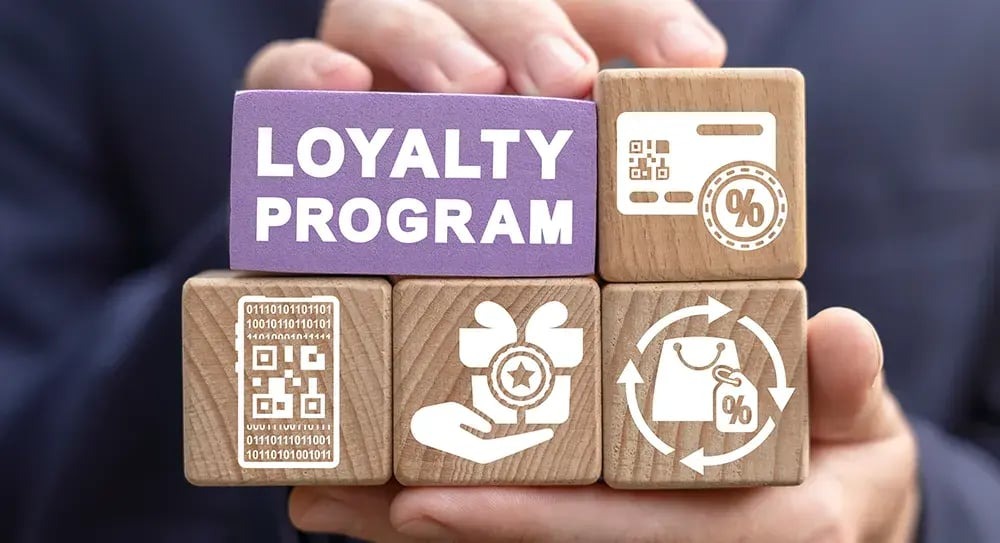
 Full-serve loyalty management
Full-serve loyalty management
Full-service loyalty management providers (such as the team here at Incentivesmart) combine the strategic expertise of agencies with advanced software, to provide a holistic solution for businesses serious about boosting customer loyalty.
Clients partnering with full-service providers often have a close relationship where the provider assumes a significant role in decision-making and programme management. This can lead to a more integrated and cohesive approach to loyalty management, with the provider acting as a strategic partner, not merely a provider of software.
Key features
- Integrated services: Full-service providers in loyalty management offer a comprehensive suite of interconnected services that span the entire loyalty lifecycle, from initial design to meticulous implementation, day-to-day management and rigorous performance analysis. By handling all facets of loyalty management under one roof, these providers ensure a cohesive and streamlined experience for businesses; maximising operational efficiency.
- Ongoing support: Full-service solutions go beyond initial setup by offering continuous support and optimisation. This proactive approach ensures that the programme remains agile and responsive to evolving market dynamics and technological advancements. Regular performance reviews and strategic adjustments enable businesses to stay ahead of the curve, fostering a competitive advantage.
Advantages
- Expert guidance: Businesses partnering with full-service providers gain access to a team of seasoned loyalty professionals with deep industry knowledge and extensive experience. These experts offer proven methodologies that align loyalty initiatives with broader business goals.
- Advanced technology: Full-service providers leverage cutting-edge technology and sophisticated data analytics tools to significantly enhance brand loyalty and advocacy. By utilising state-of-the-art tech, businesses can derive actionable insights and deliver highly personalised customer experiences that foster lasting loyalty and satisfaction.

Key features you should look for in loyalty management software
Choosing loyalty management software isn’t just about picking the flashiest platform with the most buttons. It’s about finding a smart, scalable solution that actually supports your goals and doesn’t give your IT team a headache.
You’ll want something that plays nicely with your existing systems (hello, API integrations), can grow alongside your business and offers enough flexibility to keep your incentives as fresh as your customer engagement strategy. Because what works for a company of 10 might buckle under the weight of 10,000.
So, before you commit, make sure your software ticks these five essential boxes…
 Flexible API
Flexible API
A flexible API might not be the flashiest feature on your checklist, but trust us, it’s the quiet powerhouse that keeps everything running smoothly. Think of it as the translator between your loyalty programme and the rest of your tech stack. Whether it’s your CRM, point-of-sale system or e-commerce platform, a solid API ensures they all speak the same language.
With seamless integration and real-time syncing, your customer data stays up to date. There are no awkward delays and no crossed wires. That means loyalty points, rewards balances and redemptions are reflected accurately and instantly, giving customers a smooth, frustration-free experience.
But it’s not just about connectivity. A flexible API gives you the freedom to customise your reward structures, fine-tune customer segmentation and serve up tailored offers that hit the mark. It’s the key to creating a loyalty programme that’s smart, scalable and genuinely engaging, rather than one that’s stuck in a one-size-fits-all rut.
The right API doesn’t just integrate – it elevates.
 Scalability
Scalability
There’s nothing worse than investing in a shiny new loyalty platform, only to find it starts wheezing the moment your customer base picks up speed. That’s where scalability comes in.
The right loyalty management software should grow with you, not hold you back. As your business expands, your platform should effortlessly handle more transactions, more customers and more data, without needing a complete tech overhaul or a team of IT wizards on standby.
It should also be smart enough to keep up with evolving tech trends and business needs. That means adapting to new tools, integrating with new systems and supporting your marketing brilliance as it gets more ambitious.
Oh, and don’t forget pricing. A scalable platform should come with flexible pricing models that make sense at every stage of your growth (whether you’re just getting started or going global). After all, loyalty software should support you on your journey, not charge you like you’ve already arrived.
 Setting up flexible incentives
Setting up flexible incentives
Your customers expect more than a basic “thanks” and a generic discount code. So, to really grab their attention (and keep it), your loyalty platform needs to offer a smorgasbord of flexible incentives that can be mixed, matched and tailored to suit different tastes.
A solid system should let you roll out a wide range of rewards – from crowd-pleasers like free product samples, tech and instant discounts, to points-based perks, cashback and referral rewards that actually make people want to spread the word. The trick is in the variety and the ability to fine-tune.
Want to wow your top spenders with exclusive bundles? Done. Looking to surprise new customers with a welcome gift? Easy. The best platforms let you target the right incentives to the right people at the right time, all without breaking a sweat.
Because when it comes to building loyalty, flexibility is what turns a nice reward into a reason to stick around.
 Tracking data
Tracking data
If you’re running a loyalty programme without tracking the numbers, you’re basically flying blind and hoping for the best. Solid data and analytics are the engine room of any effective loyalty strategy, helping you understand what’s working, what’s not and where to turn the dial up.
Great loyalty software should track the stuff that actually matters, like how many customers are engaging, how quickly points are piling up (or not) and which rewards are causing a stir versus those gathering dust.
Here’s just a taste of what you should be keeping an eye on:
- Number of participants in each loyalty tier (and who’s climbing the ladder)
- How rewards are distributed (and whether they’re doing the job)
- Reward expiry dates (because nothing kills goodwill like a vanished perk)
- Shopping frequency and purchasing preferences of members
- The actual cost of your loyalty campaigns in terms of redemptions
Armed with these insights, you can fine-tune your strategy, boost engagement and stretch your budget further. Because data-driven decisions are what separates the loyalty pros from the points-flingers.
 Developer-friendly
Developer-friendly
Creating a developer-friendly loyalty system is crucial as it allows developers to focus on core business tasks rather than getting bogged down in the complexities of feature implementation. A well-designed loyalty platform not only reduces development efforts but also includes key features that enhance efficiency:
- Clear documentation: Thorough API documentation is essential for swift integration and onboarding processes, ensuring developers can quickly understand and implement the necessary APIs.
- Available Software Development Kits (SDKs): Accelerate API integration by providing pre-built tools and libraries tailored to the platform.
- Sandbox environment: Access to a sandbox environment allows developers to test functionalities, run proofs of concept (POCs) and integrate solutions into existing systems without financial commitments, ensuring compatibility with current technology stacks.
- Monitoring tools: Built-in monitoring tools, ranging from platform status updates to detailed logs, empower developers to troubleshoot issues independently, reducing reliance on support teams.
- Out-of-the-box integrations: Pre-configured integrations with other software solutions streamline development efforts and enhance interoperability across platforms.
- Marketer dashboard: A user-friendly dashboard enables marketers and customer service teams to autonomously manage and monitor loyalty campaigns, freeing developers from routine maintenance tasks and ensuring seamless programme management.
- Maintenance features: Robust maintenance capabilities, such as bulk updates, export/import functionalities and scheduling options, streamline ongoing management tasks and enhance operational efficiency for developers.

Top tips for effective loyalty management
 Personalisation
Personalisation
If there’s one surefire way to win hearts (and repeat purchases), it’s personalisation.
Customers want to feel seen—not in a creepy, “we-know-what-you-had-for-breakfast” way, but in a thoughtful, “we get what makes you tick” sort of way.
Tailoring rewards and communications based on individual preferences and behaviours is the secret sauce that turns passive buyers into raving fans. When customers feel like your brand actually knows them, they’re far more likely to engage, stick around and maybe even tell their mates.
So, don’t lump everyone into the same bucket. Segment your audience by purchase history, demographics and how they interact with your brand. Then serve up rewards and messages that feel handpicked – like their favourite cocktail, but with loyalty points. It’s smarter, more effective and a lot more flattering.
 Data-driven insights
Data-driven insights
If personalisation is the secret sauce, then data is the recipe book. Your customer data – such as purchase history, browsing behaviour, feedback and the odd eyebrow-raising trend – is a goldmine of insight just waiting to be put to work.
By digging into the numbers, you can uncover what your customers really want (and what they’d rather you didn’t bother with). You can spot patterns, predict behaviour, and using that intel to create marketing campaigns that feel less “mass email” and more “made just for me.”
Armed with the right insights, you can make smarter, sharper decisions – whether that’s tweaking your rewards, refining your messaging or finally retiring that offer no one’s touched since 2021. The result? Loyalty initiatives that actually resonate, better engagement, and happier customers who feel like you’ve been reading their minds.
 Omnichannel experience
Omnichannel experience
In a world where everything’s just a tap away, your customers are everywhere – scrolling on their phones, popping into stores, browsing online at 2am in their pyjamas… and they expect your loyalty programme to keep up.
An omnichannel approach makes sure your customer experience is joined-up and seamless, no matter where or how someone interacts with your brand. Whether it’s your website, mobile app, social media or a friendly chat at the till, customers should feel like they’re dealing with one consistent, brilliantly clever business… not a bunch of disconnected departments playing email tennis.
When your loyalty programme works smoothly across all touchpoints, it doesn’t just impress—it builds trust, drives engagement and makes your brand the one customers stick with, no matter the platform. Think of it as giving your customers a VIP pass to interact with you however they like and making sure the red carpet is always rolled out.
 Clear communication
Clear communication
No one likes squinting through fine print or deciphering vague promises. If you want people to get excited about your loyalty programme, you’ve got to make it crystal clear what’s on offer, how it works and why they should care.
Transparent, jargon-free communication builds trust (and saves your support team a few headaches). Make sure customers know exactly what rewards they can earn, how to redeem them and what makes your programme worth their while. Set clear expectations and then delight them when you deliver.
And don’t just launch your programme and go quiet. Keep customers in the loop with regular updates on new rewards, upcoming promotions and any changes to the programme. When communication is clear, consistent and just a bit charming, people are far more likely to stick around and actually use those hard-earned points.
 Ease of use
Ease of use
If your loyalty programme feels like solving a Rubik’s Cube blindfolded, we need to talk. Simplicity is key. If it’s not easy to join, earn and redeem, your customers will lose interest faster than you can say “points expired”.
A smooth, intuitive experience encourages people to dive in and keep coming back. That means sign-ups should be quick, interfaces should be a breeze to navigate and rewards should never feel out of reach. Mobile-friendly? Absolutely. Clear buttons, helpful nudges and no unnecessary hoops to jump through? Essential.
Think of it this way: your loyalty programme should feel like a helpful concierge, not an admin nightmare. When everything just works—without confusion or faff—customers stay engaged, rewards get redeemed and everyone leaves happy.
 Feedback mechanism
Feedback mechanism
Want to know what’s working and what’s missing the mark? Ask the people who matter most.
Whether it’s a quick survey, a friendly review request or a casual chat with your customer service team, feedback gives you the raw, honest insight you need to fine-tune your loyalty programme. You’ll learn what delights your customers, what’s a bit “meh” and where you might need to up your game.
It’s also key to show your customers that their voice counts. When people feel heard, they’re more likely to stick around. So open up the lines of communication, keep your ears open and don’t be afraid to make changes based on what you learn. After all, even the best loyalty programmes need a little TLC now and then.
 Adaptability
Adaptability
If there’s one thing we know for sure, it’s that customer expectations don’t sit still for long… and neither should your loyalty strategy. What wowed your audience last year might earn a collective shrug today. That’s why adaptability is the name of the game.
A great loyalty programme needs to evolve with the times. That means keeping a close eye on customer feedback, market shifts and your own business goals. If something isn’t working quite as well as it used to, don’t be afraid to shake things up.
Whether it’s refreshing your rewards catalogue, adding new ways to earn points or testing out the latest engagement trends (such as gamification), staying agile keeps your programme fresh and your customers interested. The key is to be proactive, not reactiv. Because in loyalty, standing still is the fastest way to be left behind.
Partner with Incentivesmart for full-service loyalty management
At Incentivesmart, our team of expert are on a mission to take your customer loyalty game from “meh” to marvellous.
We specialise in building tailored B2B loyalty solutions that do more than just tick boxes. Whether you’re looking to increase engagement, boost retention or actually see a return on your efforts (what a thought!), we’ve got the know-how, the tech and the creativity to make it happen.
So if you’re ready to turn your customer relationships into long-term partnerships, let’s have a chat. Because with the right strategy (and a little Incentivesmart magic), loyalty isn’t just achievable… it’s unstoppable.
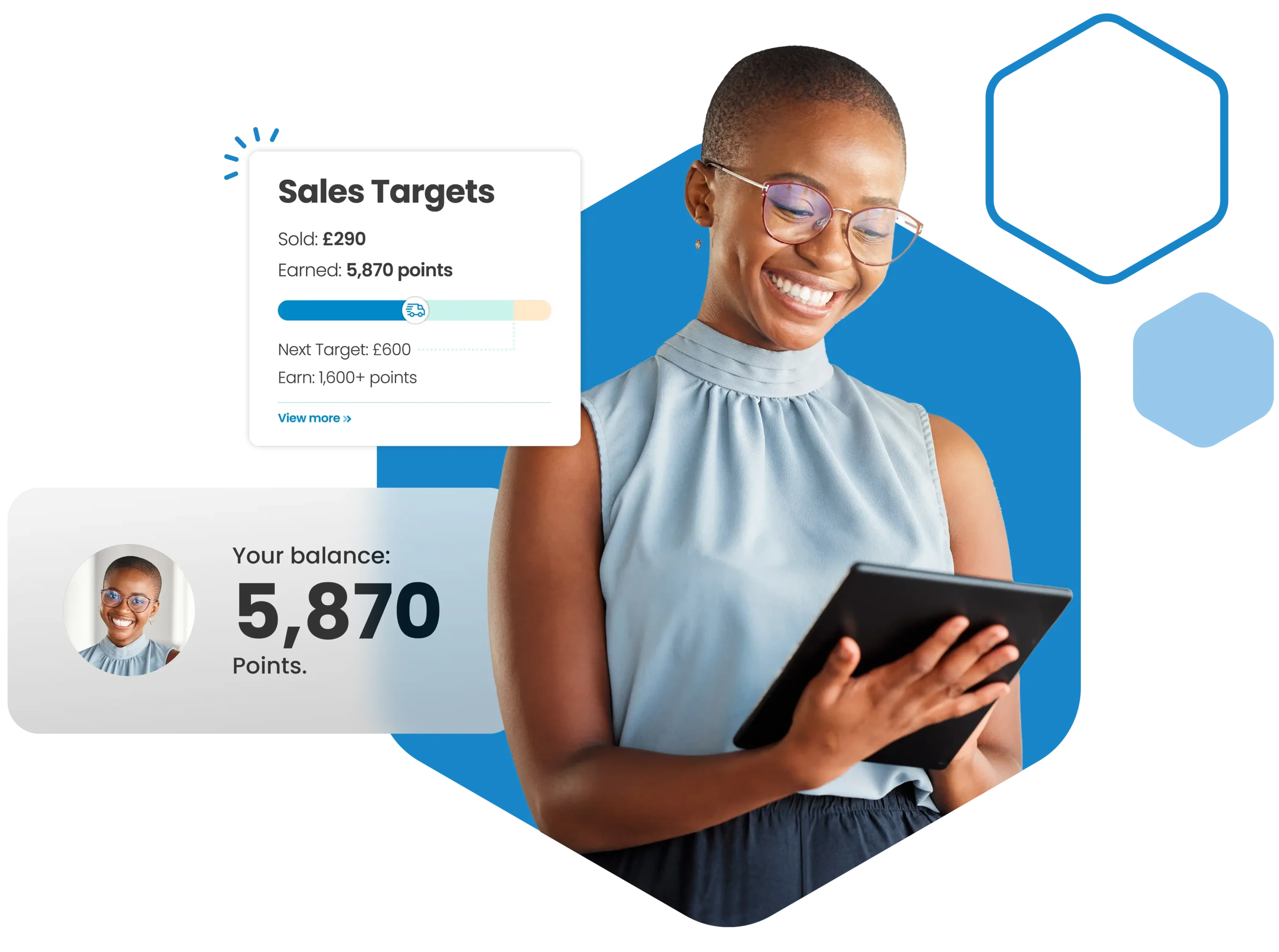

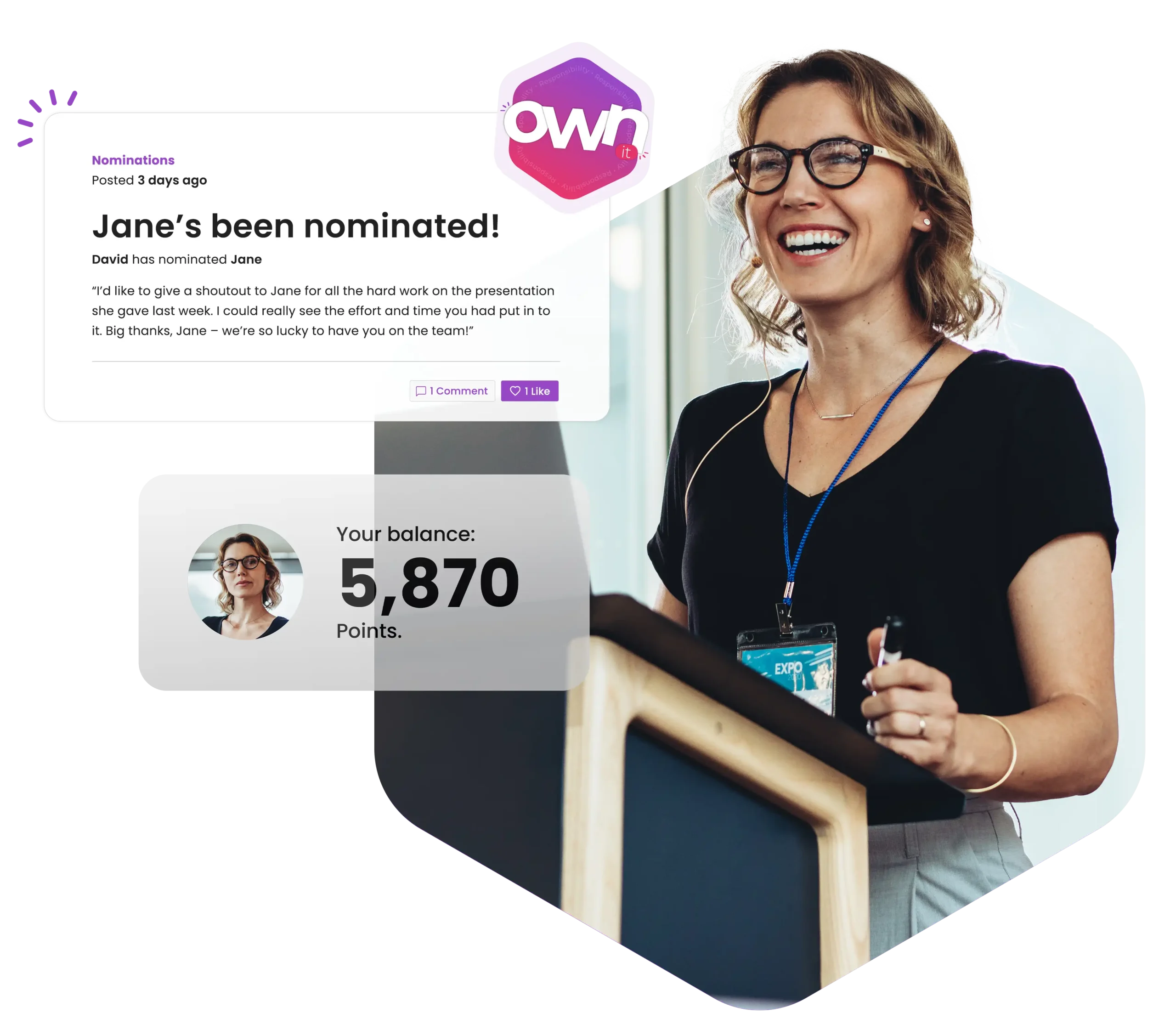
![How to keep customers coming back for more{{ include_custom_fonts({"Poppins":["Semi Bold"]}) }}](https://no-cache.hubspot.com/cta/default/5921162/interactive-188375258646.png)


